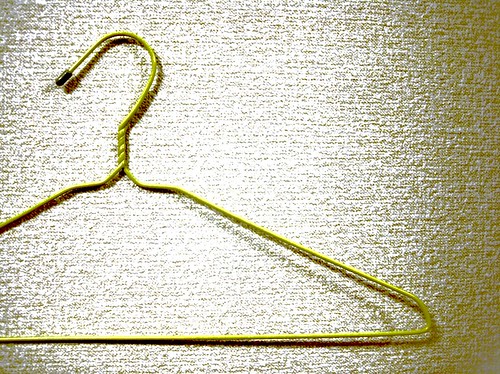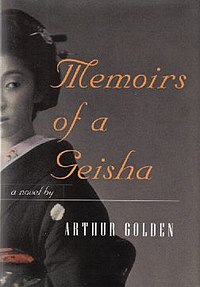Few stories are as widely recognized and well-known as Romeo and Juliet. It's a story so famous, the two names have become synonymous with young love, and doomed love, and particularly love that is both young and doomed. Romeo and Juliet is one of the most tragic stories ever penned, and one of the most filmed stories to date.
The Book
Maybe that's because Romeo and Juliet was written to be performed, not read. It's one of Shakespeare's plays, one of his most notable, and it's assigned reading for just about everybody who gets to a certain level of high school.
It's about two young people on opposite sides of a long-standing family feud. Romeo is mooning over the loss of Rosaline, an attractive girl who has spurned him. In an attempt to cheer him, his friends Benvolio and Mercutio sneak into the grand ball being held at the Capulet house. Romeo is a Montague, mortal enemy of all Capulets.
At the ball, he forgets all about Rosaline. He discovers true love, real love, when he has a chance encounter with Juliet. The two meet and nearly kiss, boldly talking of doing so (it was bold back then, believe me), before each discovers the other's last name.
They can never be together. They cannot even talk to each other. The ball ends, and Juliet goes up to her room to sit and sigh in sadness. But Romeo comes back, finding that he is unable to stay away. The famous balcony scene then plays out, with each swearing their love and devotion to the other. They agree to be married.
Meanwhile, Juliet's cousin Tybalt has discovered that Romeo was at the Capulet ball. He challenges the latter to a duel, but Romeo will not fight him. He cannot fight him, for he plans to wed Juliet and that makes Tybalt a kinsman. Mercutio, however, is affronted by the scene which plays out and he accepts the duel. Mercutio is mortally wounded in the duel, and Romeo ends up lashing out at Tybalt.
Mercutio curses Romeo, and Tybalt, and both of their houses. Two men now lay dead in the streets of Verona. The Prince exiles Romeo, who goes to Juliet at once. He spends the night with her, and they make their marriage official before he goes into exile.
Juliet's father plans to marry her to Count Paris, threatening that she will no longer be his daughter if she does not relent. She goes to the friar for help. He decides to help her fake her own death with a drug that will put her into a deep coma for two days and 40 hours. He will also send a message to Romeo.
She follow instructions and take the drug the night before her wedding to Paris. When discovered in the morning, she is laid to rest in the family crypt.
The message never reaches Romeo. Instead, he gets a message from one of his own kinsman that Juliet is dead. Romeo buys poison and goes to the crypt. There, he kills Paris in a confrontation and drinks the poison. He dies, and Julie wakes. She sees her love dead on the ground, and stabs herself with his dagger.
But you've probably heard the story...and if not, you can find it in more film versions than I could possibly list. It's one of the most filmed books on film, and it's been adapted and twisted and modernized a hundred times over. It's been satirized, it's been spoofed, it's been copied in entirety. Only a few of these film versions, however, are at all worth mentioning.
The Films
One of the oldest film versions of Romeo and Juliet is still one of the best. It was made by George Cukor in 1936, and was nominated for four Oscars (which was a big deal back then, since they had fewer categories). This version stars Leslie Howard and Norma Shearer, two of the biggest stars of the day. The film nearly didn't get made. Louis B. Mayer, head of MGM at the time, thought Shakespeare was just too complicated for ordinary moviegoers to understand. But when Jack Warner, over at Warner Bros., announced that he would be releasing A Midsummer Night's Dream, Mayer changed his mind. He green-lit the project, and an adaptation was born.
Great detail was paid to costuming and set design for the flick. Researchers went to Verona to look at paintings and study design. Academics were even brought to the set to help advise filmmakers. But critics complained about the casting. Shearer and Howard were certainly not young, teenage lovers. John Barrymore, in his 50s at the time, played Mercutio as a young flirt, and he no longer looked the part. This version is Shakespeare rearranged, with several scenes playing out of order. Friar Laurence's role is reduced, and some other scenes are expanded. We also get to see Rosaline in this version; she never actually appears in the play.
Mayer's gut reaction was right. The film wasn't a critical success, and it was bashed for being too "arty." Filmgoers didn't turn out to see it...just as they hadn't gone to see A Midsummer Night's Dream, released the year before by Warner Bros.
Hollywood didn't make another Shakespearean adaptation for more than 10 years.
Franco Zeffrelli took the play on again in 1968, and he went in a totally opposite direction for his distinctive version. Unlike Cukor, Zeffrelli cast young, good-looking actors for the title roles, and made the most out of the brand-new Technicolor technology. He had better luck with his take on the film. It was the 60s, so he emphasized the elements of youth, of two young people who only wanted love...not their family's war, man. It was a message he hoped would resound with the 60s counter-culture.
He hired Leonard Whiting, 17, to play Romeo. Olivia Hussey, 15, was cast as Juliet. Both were studied stage actors, and gorgeous. This version of the story focuses on the young lovers and injects more energy into the dialogue. Romeo's duel with Paris is cut out, a decision that many filmmakers make when adapting the story. No one wants to turn Romeo into a bad guy.
A distinctive version of the story wouldn't be made again until 1996. Re-titled as Romeo + Juliet, this adaptation was directed by Baz Luhrmann. Claire Danes stars as Juliet, Leonardo DiCaprio as Romeo. This version uses most of Shakespeare's original dialogue, pressed against the background of a more modern-looking Verona. The swords are guns, the fashion is interesting and the soundtrack is filled with lush, 90s-era pop hits. It's more mob-meets-Shakespeare than true Shakespeare, but it's a damned good version. The ending will absolutely make you cry, even when you know it.
But my personal favorite is probably the most wildly adapted version of the story you'll find: West Side Story. Written in the 1950s for the Broadway stage, it was adapted in 1961 as a musical film...and it's fabulous. Natalie Wood stars as Maria (Juliet) and Richard Beymer as Tony (Romeo). The story is moved from Italy to New York City, and centers on two rival street gangs, the Sharks and the Jets.
The Jets are a group of street toughs, greaser kids who are all white by race. The Sharks are made up of Puerto Rican immigrants who are fighting to eke out there turf in the big city. None of Shakespeare's dialogue is used, and a bunch of well-choreographed songs are added, but the flavor of the story and most of the plot is exactly the same. Maria is still a sweet, young girl, untouched by love until she sees Tony. It's absolutely the most relatable re-telling of the film, and relevant even today if you can look past the 1960s fashion.
How good is West Side Story? It was nominated for 11 Oscars and won 10 of them, including Best Picture. It's won more awards than any other musical ever made, and there have been a lot of them.
But maybe you should watch all of the notable film versions of the story, just in case. You're going to be asked to read the book, if you haven't already, so you might as well see it on the screen, too.











































